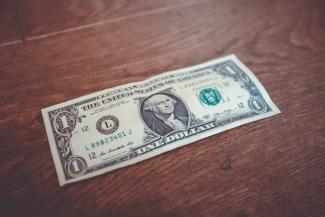
Accentuate the Negative: Tips for Treasuries
Traditional Treatment of Treasury Bills vs. Now
Since cash and bank deposits at brokerage firms and banks typically pay little or no interest, I have historically steered clients with a need for safety and liquidity to move their cash to treasury bills. This has been a particularly attractive proposition for clients with corporate accounts that may hold several million dollars in reserve. Why let millions of dollars of corporate cash earn zero percent interest at a bank with only $250,000 of FDIC protection?
Well, the answer to that question got a whole lot less rhetorical in March as yields on short term treasuries actually turned negative. I inquired as to rates on 120-day t-bills to park a couple of million dollars of corporate cash, and was informed by the trading desk that the yield was just under NEGATIVE .4%!
In other words, for every $1 million my client wishes to park in treasuries for six months, he will have to pay a "storage fee" to the U.S. Treasury to the tune of $2,000. Seen through this lens, zero percent on bank deposits seems like a windfall. To borrow a line from a classic Paul Newman movie, "Sometimes nothin' can be a real cool hand."
The Bright Side of the Current Situation
Fortunately, there are still a couple of decent interest-bearing alternatives for individual consumers and small business owners. As I have mentioned in previous newsletters, many online banks still offer yields north of 1% on checking, savings, and CDs, and establishing on-demand transfer links between accounts with these institutions and your bank or brokerage accounts is fairly simple. Additionally, for people with cash well in excess of the FDIC coverage limits, we have the ability to spread money over multiple banks within a single brokerage account. For example, a client with a corporate account with $2 million in cash to invest for a short period of time, might buy $250k 3-month CDs from 8 different banks within the corporate brokerage account. While CDs are not quite as liquid as T-bills, they are a reasonable substitute.
So why on Earth would anyone purchase treasuries with negative yields? The answer is that individual investors and small corporations shouldn't. But if you are a large institution with hundreds of millions or even billions of dollars to park, it is not practical to allocate that much money across hundreds of banks. For those companies or governmental bodies, it may very well be worth paying the treasury to hold the money where it is 100% liquid and very secure.
Related Reading: How Negative Interest Rates Work (Investopedia)

